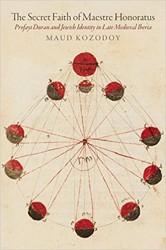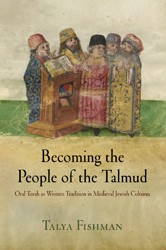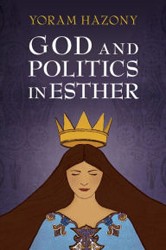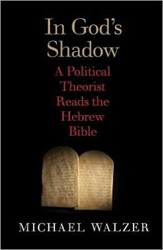By
– May 21, 2013
The Bible is many things to many people. Most find the Bible to be a source of inspiration and instruction. Others see it as literature, history, or myth. One’s perspective also colors how one views authorship of the Bible. Regardless of its divinity or multiple authors, there are two incontrovertible truths about the Bible. First, the Bible sought to transition a people from paganism to a monotheism with a recognizably Jewish belief system. Second, the Bible did not exist in isolation from the rich literary and oral traditions of its historical milieu.
The authors of From Gods to God, both professors of Bible at the Hebrew University in Jerusalem, argue that many passages and stories reinterpret and suppress or transform pre-existing narratives to make them compatible with a monotheistic theology. The thirty examples chosen reflect this polemic according to Shinan and Zalkovitch.
The Bible railed against polytheism, cultic elements, and pagan practices. The figures portrayed in the Bible therefore had to be free from these characteristics. The authors engage in literary archaeology to retrieve what in their opinion constitutes ancient traditions suppressed by the Bible in order to fit this description. As in all cases of archaeology, one can only extrapolate from what finds and even that is oft en conjecture. The authors weave together disparate passages from the Bible, quote from ancient Near Eastern texts, cite parallels from post-biblical literature and later translations, and even invoke Greek mythology and the New Testament to support their “discoveries.”
The authors acknowledge the theoretical aspects of their research as they reconstruct what they claim were the original narratives. Phrases such as ‘interpretive fog ‚’ ‘reconstruct traditions,’ ‘ residue from ancient ideological debates,’ bridge the chasm,’ ‘we propose,’ ‘this conjectured story,’ ‘the reconstruction of this story,’ ‘our hypothesis,’ ‘we’ll never know what exactly was told among the ancient Israelites,’ reconstructed tradition, our conjectured story, etc. indicate the speculative nature of these reconstructions.
Perhaps one can argue that in the same way that Moses retells events in Deuteronomy differently from the way they are told in Exodus and Numbers, that he (with Divine approval) retold contemporaneous events in a particular way for instructional purposes, and not solely to document historical truth. In addition, the Talmud and Midrash oft en point out parallels and allegory and even attempt to resolve contradictions in the text.
The topics and personalities analyzed are fascinating. The authors demonstrate familiarity with multiple forms of exegesis as well as knowledge of Hebrew, Aramaic, and Greek texts. The book is well written, well researched, and offers a challenging look at many significant Biblical stories and personalities.
The original Hebrew volume was entitled “Lo kach katuv ba-Tanakh” meaning that these (reconstructed) stories were not in the Bible. However the English title From Gods to God really indicates what the authors feel is the reason these narratives were suppressed. It is not for the casual or general reader.
Wallace Greene, Ph.D., has held several university appointments, and currently writes and lectures on Jewish and historical subjects.





